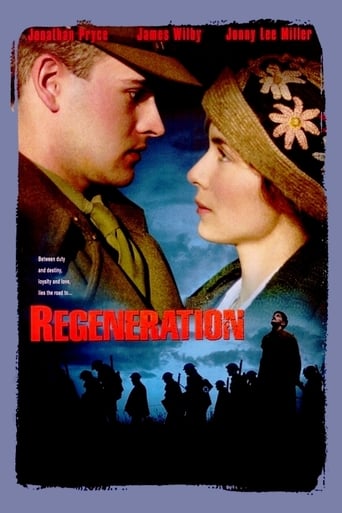


Regeneration
Wilfred Owen and Siegfried Sassoon, two of England's most important World War I poets are sent, along with other traumatized combatants, to a rest home in order to treat their emotional troubles, caused by the psychological fatigue that suffer the soldiers fighting in the no man's land.
-
- Cast:
- Jonathan Pryce , James Wilby , Jonny Lee Miller , Stuart Bunce , Tanya Allen , Dougray Scott , David Hayman


Similar titles
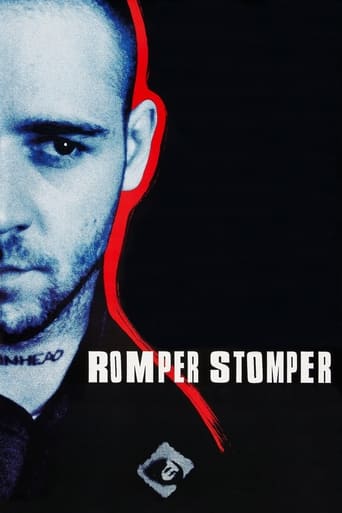
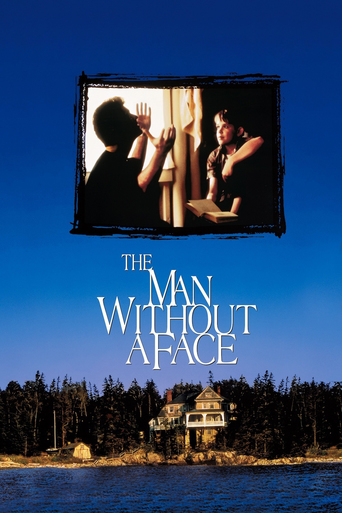
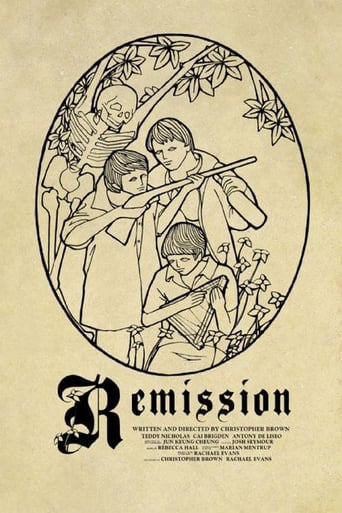
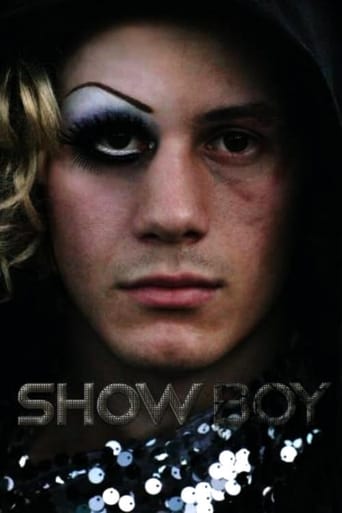
Reviews
Highly Overrated But Still Good
The movie turns out to be a little better than the average. Starting from a romantic formula often seen in the cinema, it ends in the most predictable (and somewhat bland) way.
what a terribly boring film. I'm sorry but this is absolutely not deserving of best picture and will be forgotten quickly. Entertaining and engaging cinema? No. Nothing performances with flat faces and mistaking silence for subtlety.
A clunky actioner with a handful of cool moments.
Regeneration tells the story of the hospitalization during World War I of English poet, Siegfried Sassoon. It seems he was committed to a facility treating victims of shell-shock because he made the following statement about the war:"I am making this statement as an act of wilful defiance of military authority, because I believe that the War is being deliberately prolonged by those who have the power to end it. I am a soldier, convinced that I am acting on behalf of soldiers. I believe that this War, on which I entered as a war of defence and liberation, has now become a war of aggression and conquest. I believe that the purpose for which I and my fellow soldiers entered upon this war should have been so clearly stated as to have made it impossible to change them, and that, had this been done, the objects which actuated us would now be attainable by negotiation. I have seen and endured the sufferings of the troops, and I can no longer be a party to prolong these sufferings for ends which I believe to be evil and unjust. I am not protesting against the conduct of the war, but against the political errors and insincerities for which the fighting men are being sacrificed. On behalf of those who are suffering now I make this protest against the deception which is being practised on them; also I believe that I may help to destroy the callous complacency with which the majority of those at home regard the contrivance of agonies which they do not, and which they have not sufficient imagination to realize".Due to the influence of fellow poet, Robert Graves, Sassoon was confined to the hospital rather than being confined to prison.The film opens with this statement after having panned from above the scenes of death in the mud so familiar to soldiers in that especially bloody war. I was struck that the statement could have been easily made by any soldier honorably serving today in the Middle East.Even though the film is based upon a work of fiction, three of four main characters were real people - Sassoon; young writer, Wilfred Owen; and anthropologist, William Halse Rivers who did extensive work with victims of the mental trauma of war. Owen died in the war in 1918 at the age of twenty-five. Halse died in 1922 at the age of fifty-eight. Sassoon lived until 1967, dying at the ripe old age of eighty-one.The film is expertly produced giving insight into the view of soldiers who are emotionally devastated by war as well as those treating them. Keep in mind that the general attitude was that any treatment should lead to the soldier returning to the battlefields. Halse is more sympathetic to the trials of these soldiers, but it is his aim to return them to be killed - or survive with a little luck. The battle scenes are somewhat dreamlike as most take place in the minds of the patients. Even with their grim subject, they are beautifully done.This is not a happy film. Its subject prevents that. It is, however, a production with fine acting, authentic locations, and a script that causes you to think about the plight of the soldier in all wars at all times. It caused great sadness in me knowing that I will die thinking that mankind will never find a solution to sending young men out to be slaughtered in the name of politics or religion just as those who have died hundreds of years before me have thought. Do you suppose that people - at sometime in the future - will die knowing that political and religious differences are always settled without the spilling of blood?
In 1998 I saw a great war film that was lost in the glare of the nearly simultaneous American film releases of Terrence Malick's remake of The Thin Red Line- which is a great film, and Steven Spielberg's cliché and stereotype-dripping Saving Private Ryan. It was a 1997 Canadian and British film called Regeneration, directed by Gillies MacKinnon (who directed The Playboys, and Small Faces), based upon the famed book of the same title by British novelist Pat Barker. The screenplay was written by Allan Scott. There were a couple of differences between it and the other films; the first being that it was set during World War One, in 1917, while the other two took place during World War Two. The second was that Regeneration may have been the best film of the trio. In the years since, I have searched for the film on DVD, but it only was available in a Region 2 DVD format. Then, I recently found it online, released by Artisan DVD, for American audiences. The DVD is as bare bones as one can get- not a single bonus feature. But, even worse is the fact that it was released under a different, and far less compelling and more trite, title of Behind The Lines. Worse yet is the fact that this film is a bowdlerized, dumbed down version of the great film I remember seeing.While I cannot pinpoint all the changes from the original film, the overall effect on me was not as great. Oh, it's still a good film, but the greatness has been lost due to the cutting out of some scenes entirely and the trimming of others- to get the nearly two hour original film down to 95 minutes, and re-editing the film into shorter scenes that are interspersed with each other, designed to appeal to a more MTV and video game mindset. Lost in the rush to appeal to typical American idiocy was most of a small romantic subplot, and extended scenes between two of the main characters, the War Poets Siegfried Sassoon (James Wilby) and Wilfred Owen (Stuart Bunce). One has to guess that if the film had too much poetry in it that the McDonald's fed masses would be turned off. Yet, the worst cut, for me, comes about two thirds into the film, where Dr. Rivers (Jonathan Pryce), head of the asylum- Craiglockhart War Hospital in Edinburgh, Scotland, where shell-shocked soldiers go for psychotherapy, goes to London, on R&R, to visit a colleague, Dr. Yealland (John Neville), who is using a very effective form of electroshock therapy to get soldiers suffering from mutism to speak again. All these years later it was that scene, above all others, which stood out in my memory. As a mute soldier is strapped down and about to be shocked for the first time, the camera cuts away from the soldier, and as his agonal screams ripple outward, one only sees the slightly winced reaction of the doctor. It's a brilliant cut and displays the director's command of his craft, for it's a) always better to imagine such horrors, and b) the doctor is the more important character. However, in the Americanized DVD version, all that is lost. We see a standard, even generic, editing job of pain, the doctor wincing, pain, the doctor hanging his head, etc. Thanks, my native land!The film still has, however bowdlerized, more contemporary relevance than the other two films which drowned it out in 1998, if only because- given the current U.S. treatment of both its Prisoners Of War and veterans of the Iraq War, it shows how little supposedly 'civilized nations' have come in almost a century of warfare. It also touches on smaller aspects of the war, like mail censorship, which are never shown in war films, much less even discussed in many for a regarding warfare. While The film lacks the high tech graphics of its bigger budgeted cousins from 1998, the words of some of the poems, and the reactions of the soldiers say far more than mere 'shocking' images can, for words that are well chose can never inure their readers. Images, even great ones, can do just that through sheer repetition. That said, the best images in the film are not elaborate war scenes, but those designed to show the aftereffects of war on the human body and mind. As example, there is a young soldier who is a quivering wreck, wont to running naked through the woods and mutilating himself, because, we learn, he was thrown by a shell explosion, into the air and when he regained consciousness he was lying face down in the rotted corpse of a German soldier. Hearing what caused him to become so disturbed is more effective than showing his face inside a bloodied, rotting mass of flesh, for, as in the cut scene of Dr. Rivers turning away from the sight of electroshock therapy, what is imagined is always worse than what can be portrayed, for each individual will fill in the horror with their own fears, rather than having a fixed image in their minds.The cinematography, by Glen MacPherson, is stunningly realistic yet beautiful- especially in the sepia-tinged, color leeched war sequences, but throughout the whole film, as well; and it works well with the simple and understated musical score. It is a stark reminder that, then and now, one need not have all the high tech big budget special effects wizardry of a Steven Spielberg film to leave far more haunting images- perhaps the most effective one left in this bowdlerized film is the opening of a pair of human eyes buried in mud, so that the whites burn with startling intensity up at the viewer. If only the American distributors had not so badly butchered this film, from the title on, the rest of the film would have retained the intensity of those eyes which held me through nearly a decade.
"a moving account of troubled times". at times fluid, at times clunky this movie does exactly what it sets out to do...the depiction of the destruction - both in terms of lives and that of art - that war brings upon humankind. wonderful acting all round, from the main actors right down to the supporting cast especially in the final moving scene featuring a man looking introspective yet overwhelmed with joy who hugs and congratulates all around as the armistice bells signal the end of the war. this film brilliantly provokes the question, "what would i do?" sadly no film will ever bring us fully to the answer to that question but regeneration serves to move us that bit closer.
The lush, dark green of the English countryside, it's brooks & obscuring fogs stands starkly in contrast to the unrelenting greyness of the mud, the mire and the bloody reduction of men. A loosely fictionalized portrait of Sassoon's hospital interlude and a dramatization of the question he raised in his Protest. Compelling on all levels.
